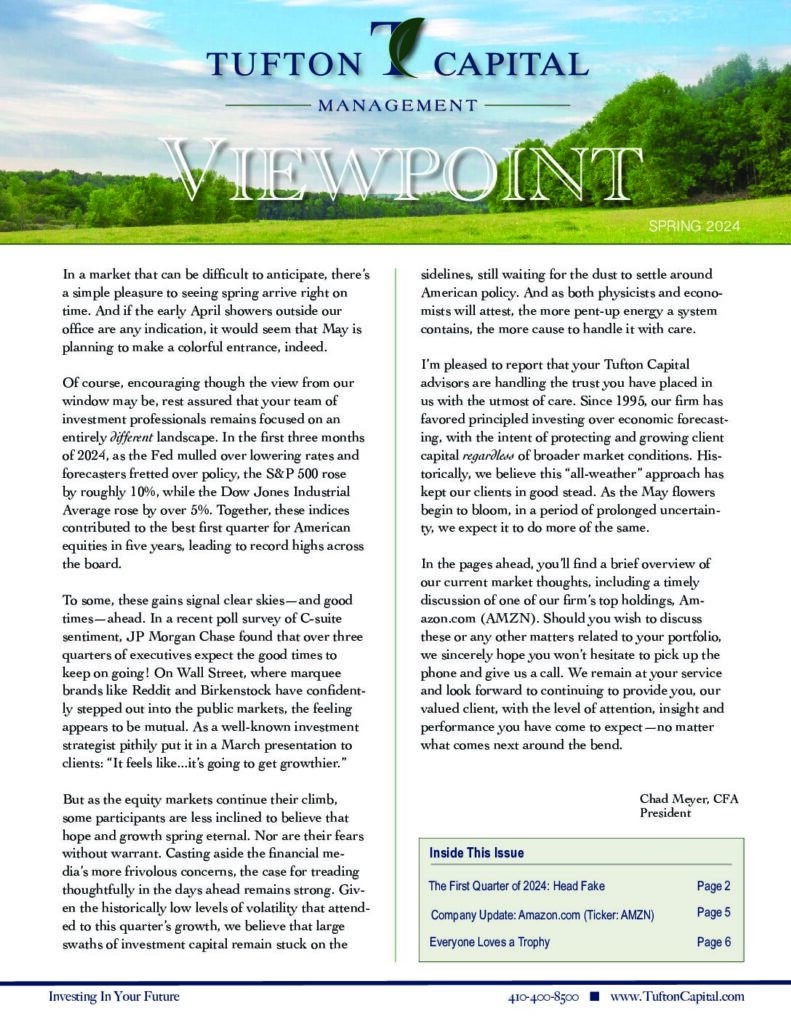The CARES Act: A Review of Select Provisions
By Rick Rubin
In response to the COVID-19 pandemic that spread across the U.S., the Coronavirus Aid, Relief, and Economic Security (CARES) Act was passed by Congress and signed into law by President Trump on March 27, 2020. The CARES Act is a $2 trillion emergency fiscal stimulus package designed to help battle the disruptive economic effects of COVID-19 for individuals, businesses, healthcare providers and state and local governments.
Select provisions of the CARES Act include:
- Waiver of required minimum distributions (RMDs) for retirement account owners and beneficiaries in 2020.
- Potential tax benefits for coronavirus-related distributions of up to $100,000 for an individual who has been impacted by the coronavirus.
- Temporary federal tax breaks for certain cash charitable contributions made in 2020.
- Suspension of student loan payments through September 30, 2020.
RMDs waived during 2020
The CARES Act provides broad relief for individuals to waive RMDs from 401(k), 403(b), 457(b) plans, as well as Traditional IRAs, SEP IRAs and SIMPLE IRAs. The relief applies to retirement account owners, as well as to beneficiaries of inherited retirement accounts (such as an inherited IRA, Roth IRA, and 401(k)).
While RMDs are waived for 2020, voluntary distributions are still allowed from retirement accounts. Furthermore, IRA owners and IRA beneficiaries age 70 ½ and older are entitled to make qualified charitable distributions (QCDs) tax-free from their retirement accounts.
BREAKING NEWS– Return unwanted 2020 RMDs tax-free until August 31, 2020
Some individuals had already received RMDs before the CARES Act was signed into law in late March 2020 and wanted to return those amounts to avoid paying taxes on their RMDs. Unfortunately, many individuals were not eligible to return their RMDs via rollovers, and thus were out of luck. These individuals will likely appreciate a recent development from the IRS.
On June 23, 2020, the IRS issued Notice 2020-51 that essentially permits any individual who received an RMD distribution to roll over that amount until August 31, 2020 and avoid paying taxes on the RMD. In fact, the IRS provided broad enough relief such that a non-spouse beneficiary can return a 2020 RMD to an inherited retirement account by August 31, 2020 and avoid the tax bill. Of course, any part of the RMD not returned by August 31st will be taxable.
Coronavirus-related distributions may offer potential tax benefits
Coronavirus-related distributions are distributions of up to $100,000 from work retirement plans, IRAs, or a combination of both made in 2020 by an individual who has been impacted by the coronavirus. Several potential tax benefits include:
- Exemption from 10% penalty. Individuals under the age of 59 ½ may access retirement funds without the normal 10% penalty that would otherwise apply.
- Exemption from mandatory withholding requirements. Generally, eligible distributions from work retirement plans are subject to mandatory U.S. withholding of at least 20%. However, coronavirus-related distributions are exempt from this requirement.
- Ability to be repaid over three years. An individual has up to three years to rollover all or any portion of the coronavirus-related distribution back into a retirement account. The repayment can be made with a single rollover, or several partial rollovers during the three-year period.
- Option to spread income over three years. The income from a coronavirus-related distribution is split equally over 2020, 2021 and 2022 by default. However, an individual can elect to include all of the income in their 2020 income.
Federal tax breaks for cash charitable contributions in 2020
An individual’s limit on cash contributions made to charities temporarily increased to 100% of Adjusted Gross Income (AGI) for 2020 only. Previously, cash contributions were limited to 60% of AGI. Thus, an individual can effectively eliminate his/her 2020 tax liability with charitable cash contributions. Importantly, this provision prohibits contributions from funding donor-advised funds (DAFs).
Relief for student loan borrowers
Required payments on Federal student loans are suspended through September 30, 2020. No interest will be accrued on the loan during this time. However, voluntary student loan payments will continue unless the individual contacts the lender and asks to defer payments.
Employers can provide employees with up to $5,250 for purposes of student loan payments and exclude those amounts from their income. This amount is combined with the $5,250 limit that employers can provide employees tax-free for current education. Thus, an employer can provide a maximum of $5,250 of tax-free education assistance to an employee in 2020.
These new temporary rules provide a good reason to review your tax planning. Please reach out to your Tufton investment advisor, accountant and/or attorney with any questions. Tufton has provided highlights of certain provisions of the CARES Act that we consider most important for our clients, prospects and readers. Given the short turnaround, we expect that the IRS or other government authorities will provide guidance on the implementation of the rule changes. This article is not intended to be a comprehensive review of each of the Act’s provisions.
Tufton Capital Management, LLC (Tufton) is a Registered Investment Advisor with the U.S. Securities Exchange Commission. Tufton cannot provide legal advice or tax recommendations.



